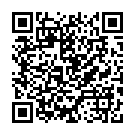オウンドメディアという新しい情報発信の価値。
Column|2025.3.20
Photo_Kotaro Sakata
Text_Kotaro Sakata
昨今、TV局が、自身をオールドメディアと自虐する。かつては4媒体(TV、ラジオ、新聞、雑誌)の王者がその座をネットに譲ったのが2021年ですので、王者陥落から4年が経過した。さらに、4媒体の広告費は斜陽業界で、『情報は、無料』というのが市民権を得て、情報も玉石混交ですが、それも享受することにも慣れて来た。つまり、情報のファクトと選別は、受信者側にそのリテラシーが求められている。その中で、今、注目なのが『オウンドメディア』である。企業ホームぺージとの違いとしては、HPは、自分で己を褒めなければいけないという点が難しい。『盛られていないか?』、『発信されている情報の客観性』、『美しすぎる映像にエゴは無いか?』など、受信側も結局客観的な『口コミ』SNSの辛辣な発信とのギャップが誤解を助長する結果となりかねない。
しかし、『オウンドメディア』は、客観的で訴求商品(製品)の周辺情報やそれがある豊かな生活を有形・無形に空気感を伝えられるということである。
しかし、オウンドメディアとホームページの制作差異を制作側が強い意志を持たなければ、結局『自社ホームページの様なもの』になってしまう。
代表的なオウンドメディアは、トヨタが行っている『トヨタイムス』である。TVCMでは、『詳しくは、トヨタイムスで!』ということのみを伝え、オウンドメディアに誘導することだけを訴求に託している。トヨタイムスは、トップ企業そのものがメディアであるという王者の取り組みで、他社がまねすることはなかなかできない。そのオウンドメディアはリスクマネージメントの役割も果たしている。トヨタのプリウスがアメリカで窮地に立たされた時にも、豊田章男会長自らアメリカ政府と対峙する姿は、勇敢であり、我々の心を掴む。さらには、リコールがあった場合にも、企業トップが、顔を出し真摯に自らの言葉で真実を追求する姿は、ブランドへの信頼を高めてくれるメディアとなった。
yoffは、居住空間や生活スタイル情報雑誌なので、一つ、素晴らしい、オウンドメディアをご紹介しよう。 『SUMAU』である。これは、デベロッパーのモリモトが、主宰し制作しているオウンドメディアで、心豊かな生活の情報を掲載している。 『SUMAU』には、モリモトの取り扱う住居への導線をキッパリと分けて、あくまで、人として豊かな生活とは?を純粋に提案してくれるので、他のデベロッパーのマンションに住んでいても、分け隔てなく豊かな生活の情報が多角的に編集されており、読者に本物の豊かな生活を提案してくれる。それは、『旅』、『人』、『芸術』など、住居と遠いと思われがちですが、地球に住まう我々にすてきな夢の創造世界へいざなってくれる。『SUMAU』は、信頼できる『オウンドメディア』のお手本と言っていいだろう。
The new value of information dissemination through owned media.
Recently, television networks have begun self-deprecatingly calling themselves “old media.” Once the undisputed king among the “Big Four”—TV, radio, newspapers, and magazines—television lost its throne to the internet in 2021. Now, four years later, advertising revenue for these traditional media continues to decline. At the same time, the belief that information should be free has become widespread. Content now ranges from credible to dubious, but people have grown accustomed to navigating this mix. As a result, fact-checking and filtering information have become the responsibility of the audience, demanding greater media literacy. In this evolving landscape, owned media has emerged as a powerful tool. Unlike corporate websites, which inevitably promote the company itself, owned media provides a more objective platform, offering relevant information and an aspirational lifestyle tied to the brand.
The challenge with corporate websites is their inherent bias in self-promotion. Even when content is carefully crafted, audiences tend to compare it with raw, often blunt social media reviews. This perception gap can lead to misunderstandings and skepticism.
However, simply launching an owned media platform is not enough.
If the execution lacks a clear editorial stance, it risks becoming just another version of the corporate homepage.
A prime example of successful owned media is Toyota Times, Toyota’s in-house publication. Instead of lengthy TV commercials, Toyota simply states, “For more details, visit Toyota Times!”—directing audiences straight to its platform. This strategy positions Toyota not just as a manufacturer but as a media entity in its own right, a feat few companies can match. Beyond storytelling, Toyota Times plays a key role in risk management. When the Prius faced a crisis in the U.S., Chairman Akio Toyoda personally addressed the American government—a bold move that resonated with the public. Even during recalls, Toyota uses its owned media effectively, with top executives appearing on camera, speaking candidly, and taking responsibility. This transparency reinforces trust in the Toyota brand.
Since yoff is a magazine focused on living spaces and lifestyle, let’s introduce a remarkable example of owned media—SUMAU. Produced and curated by Morimoto, a real estate developer, it serves as a platform for inspiring a richer way of life. What sets SUMAU apart is its editorial independence from Morimoto’s residential properties. Rather than acting as a promotional tool, it focuses entirely on the concept of a fulfilling lifestyle. Even those living in a competitor’s apartment can benefit from its diverse, in-depth insights on elevated living. SUMAU goes beyond housing and interiors, exploring travel, people, and art—topics that may seem unrelated to real estate but ultimately connect to the broader experience of living on this planet. This holistic approach to lifestyle makes SUMAU a standout example of what owned media can truly achieve.


SUMAUよりインスピレーションを受けてオーディオに興じるもいいものです。

『SUMAU』 HP: https://sumau.com/



